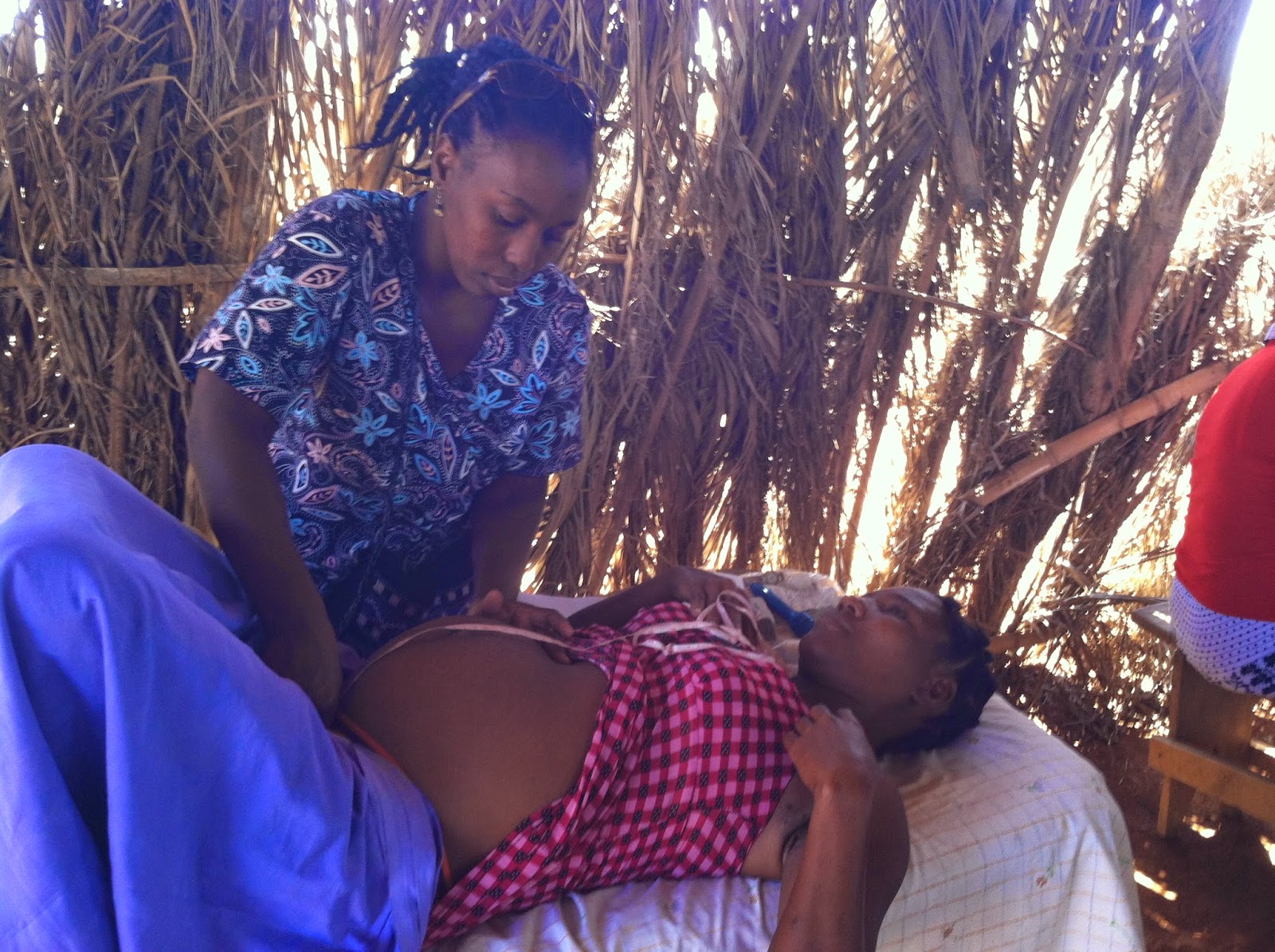Lociana measures the fundal height and uses a Doppler to listen to the baby.
Magdala sets up the tests they will do: Rapid HIV testing, malaria, and Hemoglobin. Some sites with more privacy also do gonorrhea and chlamydia testing. This clinic does not have any privacy. The women collect urine in a cup behind the building, for a urine pregnancy test, at their first visit. She is interviewing this woman, and asking about any problems she is having.
This is one of twenty villages served by the mobile clinics of Midwives for Haiti. We drive down a narrow dirt track for 40 minutes to get to Los Mamounes. (I think that is the spelling!) The clinic was in the school before, but it was too noisy, so they moved to the church. The pregnant women see us arrive and they start coming. A woman comes with a brush broom to sweep down the dirt floor, and a man tosses water on the dirt to control the dust. All the four midwives wait in the Land Cruiser. Some men bring over benches for the women to sit on while they wait, a small table for writing, and plastic chairs for the midwives. The midwives bring in three large suitcases full of supplies, and a massage table.
Marie Ange handing out medications.
The last two women waiting to be seen. We saw about 21 women this afternoon. This is one of the smaller clinics.

With the help of an interpreter, I get vital signs (blood pressure, temperature, and pulse) on all the women that are waiting, after they get their teaching. The midwives have two laminated posters. One teaches about nutrition during pregnancy. The other one has pictures of danger signs in pregnancy. The midwife teaches until the women can tell her the danger signs in pregnancy. She warns them to go to the hospital if they have any of these problems.
Magdala and Philomene get the history from each woman, and do tests. Marie Ange hands out vitamins, iron, and folic acid to each woman. Today she also gives them some sanitary napkins for their postpartum period. The fourth midwife examines each woman on the massage table. Today they tell one woman that she needs to have her baby at the hospital. Her baby is very large, measuring 41 centimeters. They explain that she could have a shoulder dystocia, that the baby could be stuck. The woman has had all her five children at home, and she has never been to Hinche. They speak to her strongly, but we wonder if she will follow their advice. She would have to take a motorcycle taxi to the hospital.
There are eight new patients today. They collect 25 gouds for the first visit, and 10 gouds for subsequent visits. (This is about 75 cents, and 25 cents.) The midwives are our graduates. They are sponsored by donors outside of Haiti. Once again, I am amazed at the efficiency of the clinic, and the competent caring of the midwives. It makes me feel good about the work we are doing.
After the clinic, we went to a casabe bakery near by. this is an unleavened flat bread made from the yucca root. It was quite amazing to see how they mashed the yucca root, compressed, dried, sieved, and then made it into large flat cakes, about 2 feet across, and baked it on a large piece of metal.
 |
| Packed up to go to the market |












No comments:
Post a Comment